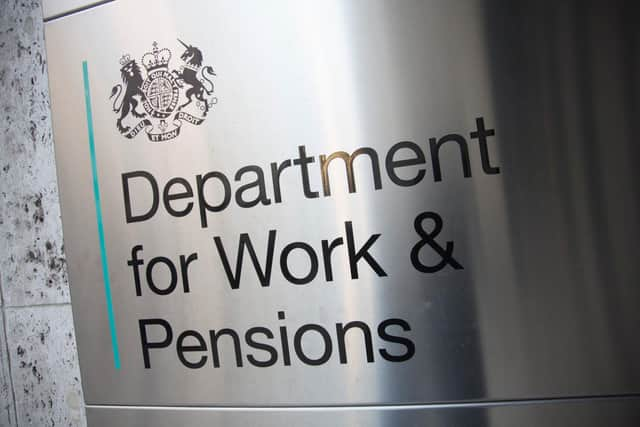Disabled Milton Keynes man loses battle to compensate millions of benefit claimants across the UK
and live on Freeview channel 276
A disabled man from Milton Keynes has lost a judicial review in the High Court that could have helped two million other benefit claimants in the UK win a backdated amount of cash.
Ian Barrow was one of four people nationally to challenge the decision of the government not to give legacy benefit claimants an extra £20 to help them during the Covid pandemic.
Advertisement
Hide AdAdvertisement
Hide AdAll Universal Credit claimants were given the temporary increase but those on legacy benefits received nothing extra.


Legacy benefits are Income-based Jobseekers Allowance, Income-related Employment and Support Allowance, Income Support, Housing Benefit, Child Tax Credit and Working Tax Credit.
Ian claims Jobseekers Allowance and has been assessed as having limited capability for work-related activity. He was represented by Osbornes Law. Had they won the case, it would mean all fellow claimants would have to be awarded £20 a week backdated for months and months.
He and his fellow claimants won the first round of their battle in April, when the High Court granted claimants of Employment Support Allowance permission to challenge the DWP’s decision.
Advertisement
Hide AdAdvertisement
Hide AdIan claimed he was unlawfully discriminated against as a disabled people by not being given the £20 a week uplift, and argued this was contrary to the European Convention on Human Rights.
At the time Ian said: "I am doing this for all the disabled people and vulnerable people on legacy benefits being discriminated against by the DWP.
"I don’t know how many people in MK this affects but we all should know. I have questioned Ben Everitt twice and no direct answer from him," he added.
However, the recent High Court hearing ruled that the difference in treatment was justified.
Advertisement
Hide AdAdvertisement
Hide AdA spokesman for Osbornes Law said: "Between 30 March 2020 and 5 October 2021 the standard allowance element of Universal Credit (“UC”) was increased by approximately £20 per week. The standard allowance is the element of UC that is intended to cover basic living costs. There was no corresponding increase for those on so called “legacy benefits”, including Employment and Support Allowance (“ESA”), Jobseekers’ Allowance (“JSA”) and Income Support (“IS”).
"The Court accepted that there were a greater proportion of disabled persons in receipt of legacy benefits, compared to disabled persons receiving UC and that disabled persons in receipt of legacy benefits were in an analogous position to disabled persons in receipt of UC."
The spokesman added: "Whilst the Court accepted that there was discrimination towards disabled people on legacy benefits, the Judge ruled that the difference in treatment was justified. Mr Justice Swift (giving judgment in this case) accepted the justification put forward by the Secretary of State for Work and Pensions (“SSWP”), that the increase to the standard allowance of UC was done with the intention of providing additional support to those people who lost their jobs as a result of the Covid-19 pandemic and were forced to claim UC for the first time.
"At the hearing, the court had been presented with evidence that, those new to benefits tended to have higher rates of savings and were better able to meet the costs of the pandemic as a result. The judgment did acknowledge the very low level of income provided by legacy benefits and the hardship those in receipt of these benefits must have faced during the pandemic. However, Mr Justice Swift did not consider that this was legally relevant to the justification advanced by the SSWP."
The legal team is currently giving consideration to whether there are merits to appeal to the Court of Appeal.